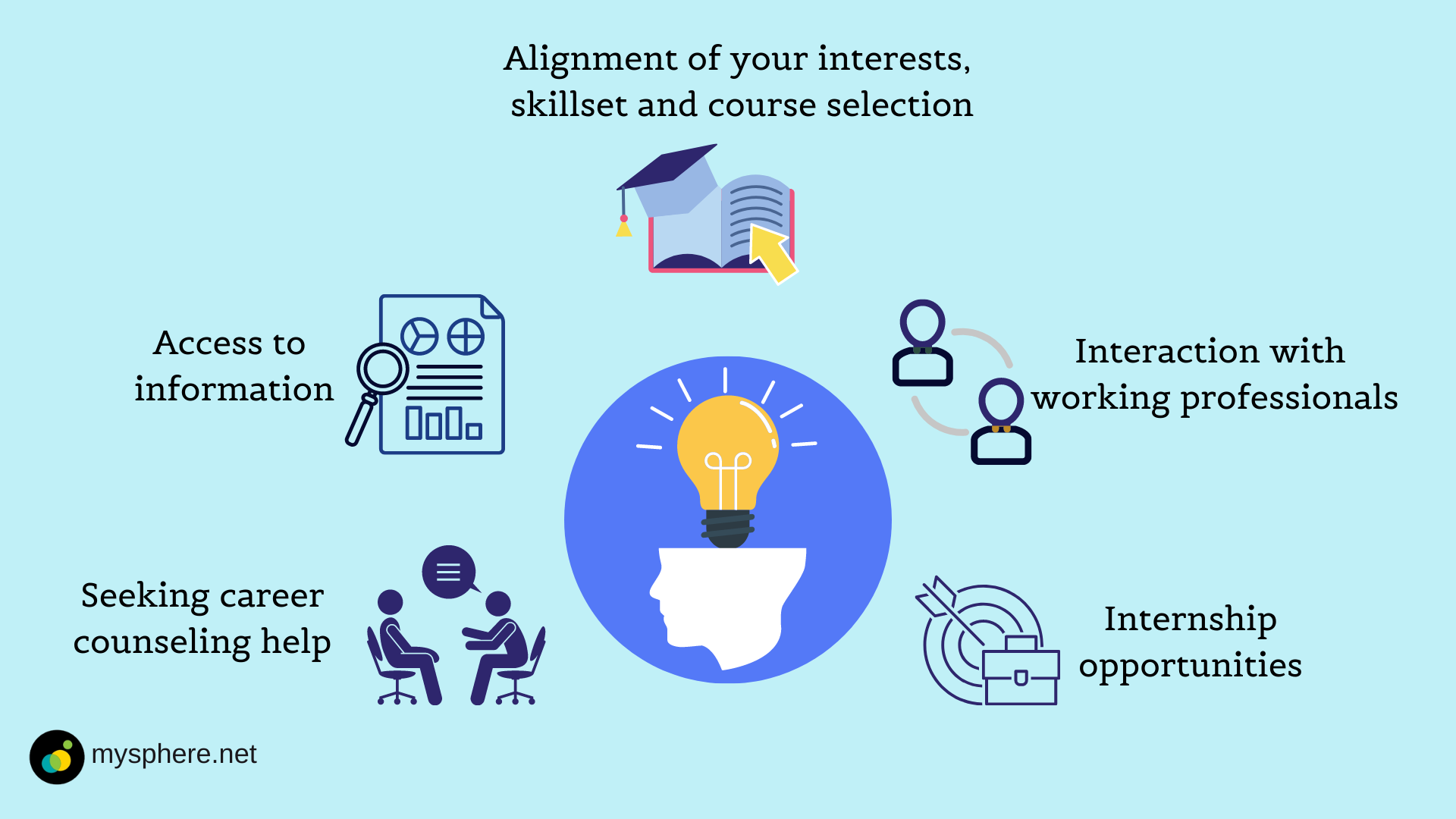“It may be that when we no longer know what to do, we have come to our real work and that when we no longer know which way to go, we have begun our real journey. The mind that is not baffled is not employed. The impeded stream is the one that sings.”
– Wendell Berry, American writer, poet
Teenagers make important decisions every day which are relevant to their future. The decisions teens make about their field of study and their time spent in learning impact the opportunities they will have in their future. The dreams and aspirations of work and life do not just depend on how talented students are. The background of the student and their families have a significant influence on those career aspirations. Not to forget, the knowledge of the world of work remains very much crucial too. Students need to see various occupations, which will help make the smooth transition from the academic to the working world.
Career planning is a crucial part of one’s life. Some individuals are clear about their career choices, some may need time to figure things out suitable paths. Confusion about career choices may start in student years and for some, it continues till their professional life too. Career confusion pushes individuals to think about their options, explore various opportunities. It also helps them seek clarity which leads to reaching a well-thought-out decision. Sometimes you have a few options in mind but did not know where to start off. Other times, you know you are really good at something and then the question is how to make a career out of it or for which career that particular skill is best suited.
Gone are those days when choosing a conventional career was the only promising option. Nowadays, students are exploring offbeat opportunities. Today’s generation has various options to choose from based on their interests, skills, and unique personality. Some are not just comfortable with conventional paths and have the itch to do something different for their careers. Off-beat careers mostly rely on individual skill sets and talent.
There are several options and learning paths now available. There are many colleges, universities and other educational service providers that now provide courses to expand knowledge in ways not formalized previously.
Examples like Food blogging, Caligrapher, Animation, Travel planners. The future job survey (2020) lists analytical thinking, innovation, active learning, creativity, emotional intelligence, ideation among the top skills that employers would be looking for by 2025. In the new job era, the importance of human interaction is inevitable. Roles like marketing, hospitality, customer service, sales, content development and other positions require communication skills. One can choose to develop these skills even in the pandemic period due to the availability of online or hybrid courses from the best mentors from around the world.
Careers of the 21st century – what are the challenges and opportunities?
Despite completing many years of formal education, young people face difficulty when they enter the job market. In this age of automation, we must think more deeply about what distinguishes us as first-class humans. How we can complement, rather than replace, the artificial intelligence we have created in our computers, and how we can foster a learning culture.

Do teenagers know what they must do to meet their career goals?
Let us understand, in these uncertain times, what is required for effective decision-making and career development.
- Alignment of your interests, skillset and course selection – preparing today for a better tomorrow Skills needed for each industry are evolving rapidly. While accepting this reality, students need to know how their interests are aligned to the most valuable career paths. If you have a deep interest in science and technology, then medicine and engineering are not the only options. This era calls for health services beyond traditional medicines. Health research, data analysis, AI, Cyber security, and virtual communications will need a lot of resources in the near future.
- Access to information – Students in a variety of nations were asked if they have access to information about university funding and, if yes if the information is supplied at school or outside of school. This is especially relevant because studies show that having access to such information can have a significant impact on the chances of young people from low-income families attending university.
- Interaction with working professionals – It was a great experience for many young people to see the importance of what they were learning in class. It helped them widen their horizons and exposed the variety of occupations and career paths available to them.
- Seeking career counselling help – Feeling confused about one’s career path is normal – at any age…that no one ‘has it all figured out’…and that confusion can even be good. It shows that you are trying to explore and understand. Don’t shy away from asking for help when you find yourself struggling to make the best career choice for yourself. Career guidance has long had a purpose in enabling the efficient operation of the job market.
- Internship opportunities – Experience of the world of work allows young people to apply their skills and knowledge in the work environment. It challenges them to understand what it means to be effective in the workplace. It also gives exposure to the people who do different kinds of jobs in their chosen field. Networking too can be exercised, which is a crucial part of the work world. Knowing things and applying them when put in certain situations requires rigorous learning experience in school/college years. It has now become increasingly important to harness knowledge to actions. Students need to know how to do things which we call experiential learning.
Every career track offers its unique way to climb the success ladder. With an ever-changing job market, it is nice to know that there are many opportunities and it is up to you to take advantage of them.
